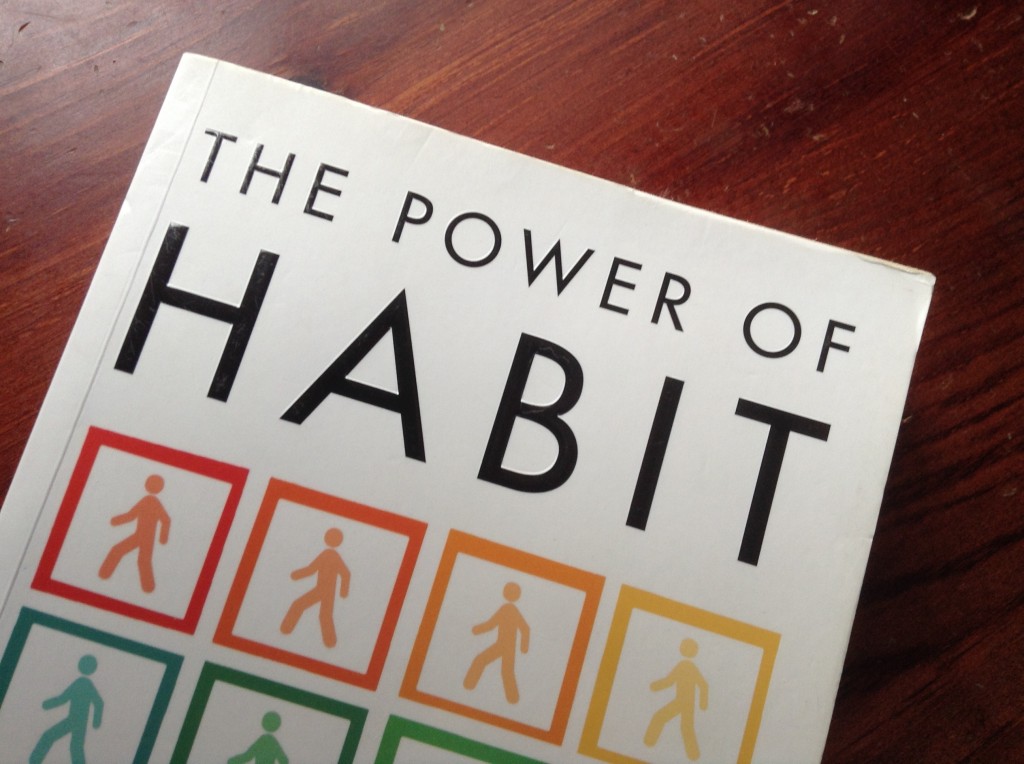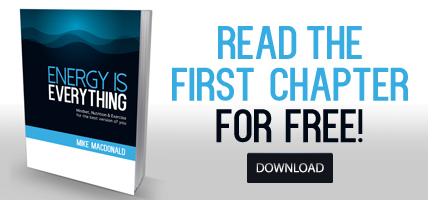The magic is not in the complexity of the task; the magic is in the doing of simple things repeatedly and long enough. (Darren Hardy, The Compound Effect)
Our daily habits shape our future. And whether those habits are consciously chosen or merely patterns of behaviour we’ve fallen into, like it or not, we’re always practicing something.
Why not chose habits that help?
Here are nine habits I consider worthy of practicing on a daily basis. Note the use of the word practice. We don’t just suddenly become great at things. It’s a practice. And there a few on this list I definitely need more practice in myself!
1. Movement
Move. Your body needs to move. Movement keeps us supple. It helps our body to function properly. It has psychological benefits. It’s fun!
If you’re devoid of energy, choose something light. Go for a walk, do some stretching. Just move. Get out of that chair and move your body. …if you don’t, sooner or later you won’t be able to.
2. Mindful eating
People freak out over nutrition. Which diet is best, which foods are best, what time to eat. To snack or not to snack? To track or not to track?
Really the first thing we need to do is just be a little more mindful when we eat. Sit down, slow down, chew and enjoy our food. In just practicing this one habit, chances are we’ll start making better choices – both in terms of the quantity of food we eat, and the quality.
3. Gratitude
It gets written off as ‘woo-woo’ or ‘airy-fairy’ stuff, but I’m becoming increasingly convinced by the importance of gratitude. We fall into the trap of living life in the future, suspending happiness until things are a little better.
In truth, happiness doesn’t come from the money, recognition, freedom or whatever we are chasing in the future – we’ll always want more. The secret is learning to appreciate the things we have right now.
No person can ever have so little that she has nothing to be grateful for. No person can ever have so much that gratitude or even contentment becomes inevitable. From the point of view of instinct, there is no such thing as having too much. From the point of view of Gratitude, there is no such thing as having too little. (Timothy Miller, How To Want What You Have)
4. Smiling
Why? Because it could make your life better. The facial feedback hypothesis is the theory that facial movement can influence our emotional experience.
Intriguing research done using pens held in subjects’ mouths to force a smile suggests that smiling can actually make you feel happier. On the other hand, when experimenters asked subjects to unwittingly mimic a frown (by touching two golf tees taped to their eyebrows!), the subjects experienced more sadness!
Research has also suggested that smiling has a beneficial effect on the stress response.
5. Courage
Courage, because the number one regret of the dying is this:
I wish I’d had the courage to live a life true to myself, not the life others expected of me.
It’s easy to fall into the trap of thinking we need courage to do courageous things. In my opinion, it’s often the other way around: by doing courageous acts, we become courageous. Courage – like muscle – grows stronger when exercised. If not, it shrinks.
My responsibility is to my heart, not toward anybody else in the world. So is your responsibility only toward your own being. Don’t go against it, because going against it is committing suicide, is destroying yourself. And what is the gain? Even if people give you respect, and people think that you are a very sober, respectable, honorable man, these things are not going to nourish your being. (Osho, Courage: The joy of living dangerously)
6. Journaling/Reflection
This is another habit people disregard. Journaling helps us to know thyself, as the Greek aphorism goes. In my experience, journaling enables us to develop a better relationship with ourselves. To discover what we want and what makes us tick. To identify what triggers our positive and negative behaviours. To learn from our mistakes and put them in perspective. To figure out what best practices we can use to unearth our potential. It’s also a great time to practice the gratitude habit and get your mind right for the day.
7. Reading/learning
It’s often said that everything in nature is either growing or dying, and although most of us are resigned to deteriorating with age (becoming fatter, sicker, and more tired) learning offers a powerful opportunity to grow.
If you are unhappy in your job, go learn a new skill and give yourself more options. It’s remarkable how much we can actually learn for free nowadays!
It has never been easier to get our hands on the best information and strategies in any field and to learn in a style that suits our own. You can learn anything you want: parenting, business, relationships, cooking, financial skills, sports, art, photography – anything! Not only will you be happier and keep your brain healthy, but you’ll grow as a person and open yourself to new opportunities and new experiences. You might just discover something you’re truly passionate about!
8. A regular sleep-wake cycle
Sleep is critical for health and wellbeing. One of the best things we can do to improve our health is to prioritise our sleep. As much as possible, set yourself a bedtime and stick to it. Be consistent.
9. Dreaming
How old were you when you stopped dreaming? As much as I believe in the importance of living in the present and appreciating what we have, I also love to dream. I love to imagine and to visualise future goals and adventures. And I love chasing dreams down. There’s magic in it. While I’m not suggesting everybody needs to have lofty ambitions, you don’t need to settle for mediocrity.
Start a bucket list today.
Always Keep Reaching!
References:
- Andrade AM, Greene GW, Melanson KJ; 2008. Eating Slowly Led to Decreases in Energy Intake within Meals in Healthy Women. Journal of the American Dietetic Association. 108(7):1186–1191
- Adelmann & Zajonc. Facial Efference and the Experience of Emotion. Annual Review of Psychology. Vol. 40: 249-280 1989
- Kraft TL, Pressman SD. Grin and bear it: the influence of manipulated facial expression on the stress response. Psychol Sci. 2012;23(11):1372-8. doi: 10.1177/0956797612445312. Epub 2012 Sep 24.
- Soussignan R. Duchenne smile, emotional experience, and autonomic reactivity: a test of the facial feedback hypothesis. Emotion. 2002 Mar;2(1):52-74.
- Cappella. The Faclal Feedback Hypothesis in Human Interaction
- Review and Speculation. Journal of Language and Social Psychology March 1993 vol. 12 no. 1-2 13-29
- Larsen, Kasimatis & Kurt Frey. Facilitating the Furrowed Brow: An Unobtrusive Test of the Facial Feedback Hypothesis Applied to Unpleasant Affect. Cognition & Emotion. Volume 6, Issue 5, 1992
- Thompson, G & Foth, D. 2005. Cognitive-Training Programs for Older Adults: What Are they and Can they Enhance Mental Fitness? Educational Gerontology 31(8): 603-626
- Chan, J. 2005. The Necessity of Creativity. Paper presented at the Business/Higher Education Round Table Emerging Skills Summit 2020 and Beyond, 22 November 2005
- Knutson et al. 2007. The metabolic consequences of sleep deprivation. Sleep Medicine Reviews (2007)11:163–178






